Junior Chamber International Hong Kong is honoured to invite Jackie Yeung, Vice President of JCI City Lady to share her SDG Pioneers Program experience and her idea of recycling masks.
Jackie has participated enthusiastically voluntary work through different organizations and she is extremely concerned about environmental issues.
1. What make you implement the idea you present SDG Pioneer?
Jackie: The SDG Pioneers Program was very well designed, there were a lot of workshops and group discussions. I met many people from other chapters through this program who share the same ideas. When we brainstorm together, we are very concerned about environmental issues. Thereafter, we decided to explore more on masks.
As there has not been hope on the pandemic yet, we think about recycling these materials via this SDG Pioneers Program. We can learn how to execute JCI Action Framework: Review, Execute, Analyze & Evaluate. To achieve this program, we did a little survey at first asking about the “Mask Mountain” in Hong Kong. We must keep asking ourselves “WHY” repeatedly. Moreover, we must think deeply what is the core problems that we are facing. After asking ourselves many times, you would discover the problem we’re seeing which is the waste (masks we disposed). Very often we discover everyone is weak in the awareness when it comes to this. Hence, they won’t specifically think how to recycle these materials
And after asking for many times we began to think how to execute, also through different channels of promotion. We also must review our direction repeatedly in the process: Whether it work or whether it is correct in order to reach the goal.

2. It is important to educate the public about recycling masks, how do we catch citizen’s attention on this?
Jackie: This is an extremely good question as SDG means sustainability, it’s easy for us to say it but it’s difficult to execute. Firstly, how difficult would it be for us to reach this target e.g. Setting recycling bins at Shopping Malls & Residential buildings is a good way for us to dispose masks. This would encourage more people to make effort and help in this project and work on the environmental issues. Educating and promotion to public is essential as well because no one likes to keep masks at home as they are unhygienic. We have to let citizens know that masks are recyclable, and we can sanitize them through heat or sanitizing chemicals. Therefore, these materials are recyclable, and we have to let more people know and lessen their worry on this. Hence, more people will have confidence in this program.

3. When you started to build the system of recycling masks, you have took reference of successful examples in other countries, what were the difficulties you faced in Hong Kong when you execute?
Jackie : When I was doing my research, I saw some successful cases in Canada, Britain and France. Apart from these countries, Australia also recycled masks and paved an entire yard of road with these rubber particles. Can Hong Kong do the same? I have my hesitations as we have not communicated with the government and we need subsidy from them. Moreover, we need more people to know about this program and to promote knowledge in this area so people actually know this program works. We have to show them successful cases from other countries and improvise them to make it better! We have to pay attention to the society and try more new ideas, bringing brand new ideas that has never happened in Hong Kong before.

4. In order to promote the masks recycling system, it requires co-operation from various industries, what are the obstacles you face during execution?
Jackie : The obstacle we face is finding people to collaborate with us. At first, I mentioned about a corporate sponsor who’s a corporate partner – masks supplier. However, his role is only a piece in the whole picture; our initial idea was to melt these rubber particles into building materials for architecture. We need to find more collaborating partners to run this project together especially shopping malls, residential buildings or even schools. How many people are willing to take a first step to work on this project though?

5. You got many awards in the SDG Pioneers Program, what is the biggest help in approaching the industries in promotion the masks recycling program?
Jackie : Thank you very much, you flatter me. I think the program is very well-designed. Before joining this program, I do not know we can promote it this well. We must fully understand the behind meanings of the 17 SDGs. Each goal is impactful to Hong Kong and when you know how to achieve each goal, you’ll know how to design your project. Thereafter, creating a greater impact to the society and this is the most important part of the project. I am very happy to be part of this program and as Vice President of my chapter, I am responsible for this area; although it isn’t about environmental issues, but it’s very useful! Whether it is project design or how to implement the idea, execute or evaluate, these few steps in the program have benefitted me a lot.
When I approach the industries, they see I got awards in this aspect; but this most important thing is our program caught the public’s attention (not because of the interviews on TV or publications). This topic may not be new but nobody has raised to recycle masks before. Through this program, we contacted expertise to brainstorm with us on the best solution on this program and how to convince people it is workable! They always talk about the 17 UNSDG goals but we do not know how to implement but the best part of this project is to think how to achieve the goal. Therefore, there are a lot of advantages of this program and I highly recommend everyone to join SDG Pioneers program.








